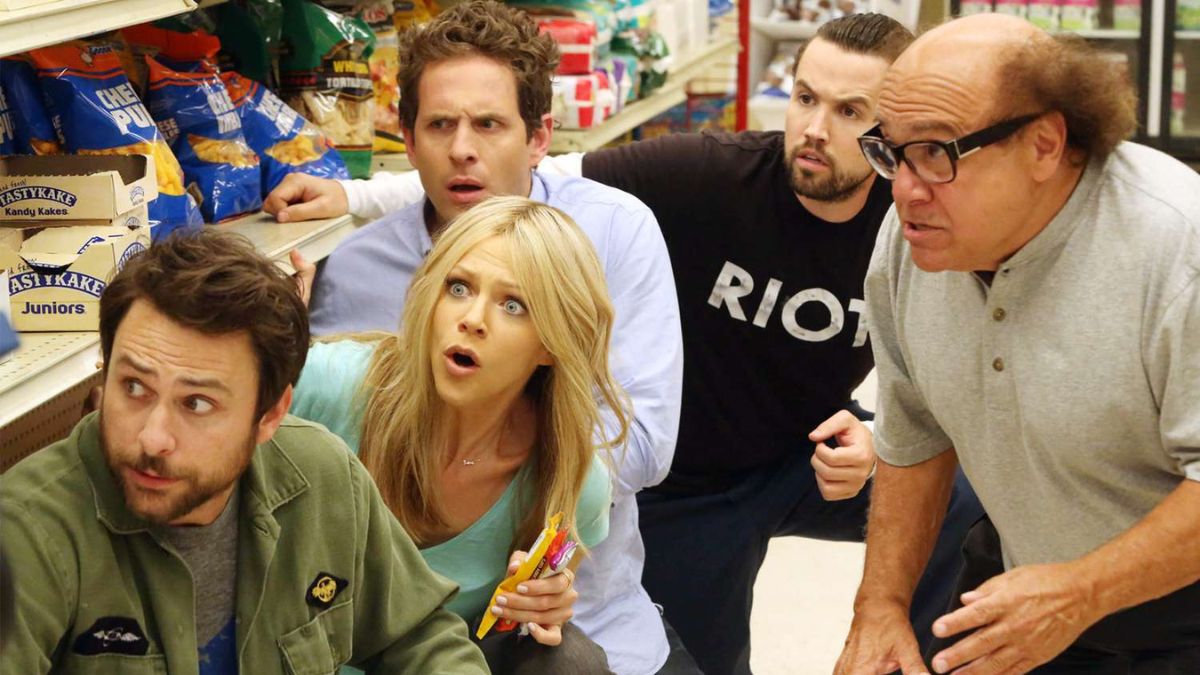No growth, no shame, no morals, yet no problems: What is the secret behind ‘It’s Always Sunny in Philadelphia’?

They’re despicable. They have no redeeming qualities. They never seem to make the right decisions. They run a bar that violates numerous health codes. One huffs glue, one is a potential sociopath, and one tries to start a cult. They have committed various forms of fraud, exploited the homeless, and find it difficult even to stay loyal to each other. Yet, Philadelphia’s leading degenerates have cemented their place in American and global television, with It’s Always Sunny in Philadelphia, set to celebrate its 20th anniversary.
Created by Rob McElhenney, the show has spent nearly two decades gleefully pushing boundaries and testing just how far an audience will go for a punchline. What began as a scrappy, no-budget pilot evolved into one of television’s boldest comedies, thanks largely to its fearlessly unlikeable ensemble. McElhenney leads “The Gang” as Ronald "Mac" McDonald, alongside Charlie Day as the feral yet endearing Charlie Kelly, Glenn Howerton as the narcissistic Dennis Reynolds, Kaitlin Olson as the self-deluded Dee Reynolds, and Danny DeVito, who joined in Season 2 and instantly elevated the madness as Frank Reynolds, the morally bankrupt parental figure with no filter and a trove of intrusive thoughts. Together, they run Paddy’s Pub, a grimy, barely functional bar in South Philadelphia that’s never turned a real profit. Its owners seem far more interested in elaborate schemes, personal vendettas, and outright criminal behaviours. And yet, despite their endless failures and complete lack of redeeming qualities, they remain TV's most enduring group of degenerates.
This premise alone should raise eyebrows in the audience. Surely no series could be this aimless and this chaotic and expect to survive? But that is where Always Sunny manages to spin the narrative. The Gang never asked to be liked; they remain stagnant and proud of being terrible people. The show does not cushion them under the guise of an upcoming character arc; it lets them stay horrible and forces them to face the music. Always Sunny creates a perfect comedic atmosphere; the worse the character, the funnier the chaos. The satire and irony go through the roof with every episode, and catastrophically too. Even the title cards serve as mini comedic gut punches, often contradicting the characters' setups. Take, for example, Season 3, Episode 8, when Frank earnestly says, “I’m just palling around with the guys. How is anybody gonna get hurt?” only to be instantly undercut by the title card: Frank Sets Sweet Dee on Fire. Unexpected, perfectly timed, and brilliantly stupid. Moments like this capture what makes Always Sunny tick.
Aside from the show, it is the lead cast’s off-screen dynamic that also adds to its weird charm. Howerton, McElhenney, and Day also serve as the show’s producers and writers. McElhenney has written countless jokes at Olson’s expense, only to fall in love with her and marry her over the next few years. As Charlie Kelly, Day acts repeatedly and creepily obsessed with the character of a waitress in the show, who is played by his wife in real life, Mary Elizabeth Ellis. There remain so many questionable moments in the show that require an insane amount of trust in the process, both from the audience and the cast. They also frequently collaborate outside of the show. The three men run a premium whiskey company together and also ran a successful podcast about the show. They also share a great bond with the other members of their cast, who return as collaborators for other projects as well. The cast places an immense amount of trust in each other and pushes each other’s boundaries, which truly pays off when it comes to audience response.
It’s Always Sunny in Philadelphia has always stayed true to its roots. They have maintained their brand of edgy and dark humour for twenty years without softening the blow or choosing a safer mainstream approach. They have tuned their show to accommodate real-time issues around America and the globe. Their jokes spare no one, not even themselves. This is perhaps why they remain the longest-running live-action sitcom in America and the second in the world. Despite confirmation of the 17th and 18th seasons, the cast members have mentioned they might go on a hiatus and work on their personal projects, then return to the shoddy world of Paddy’s Pub. The story of the Gang’s fate remains to be seen, although they will not be going down without a fight.
Entertainment